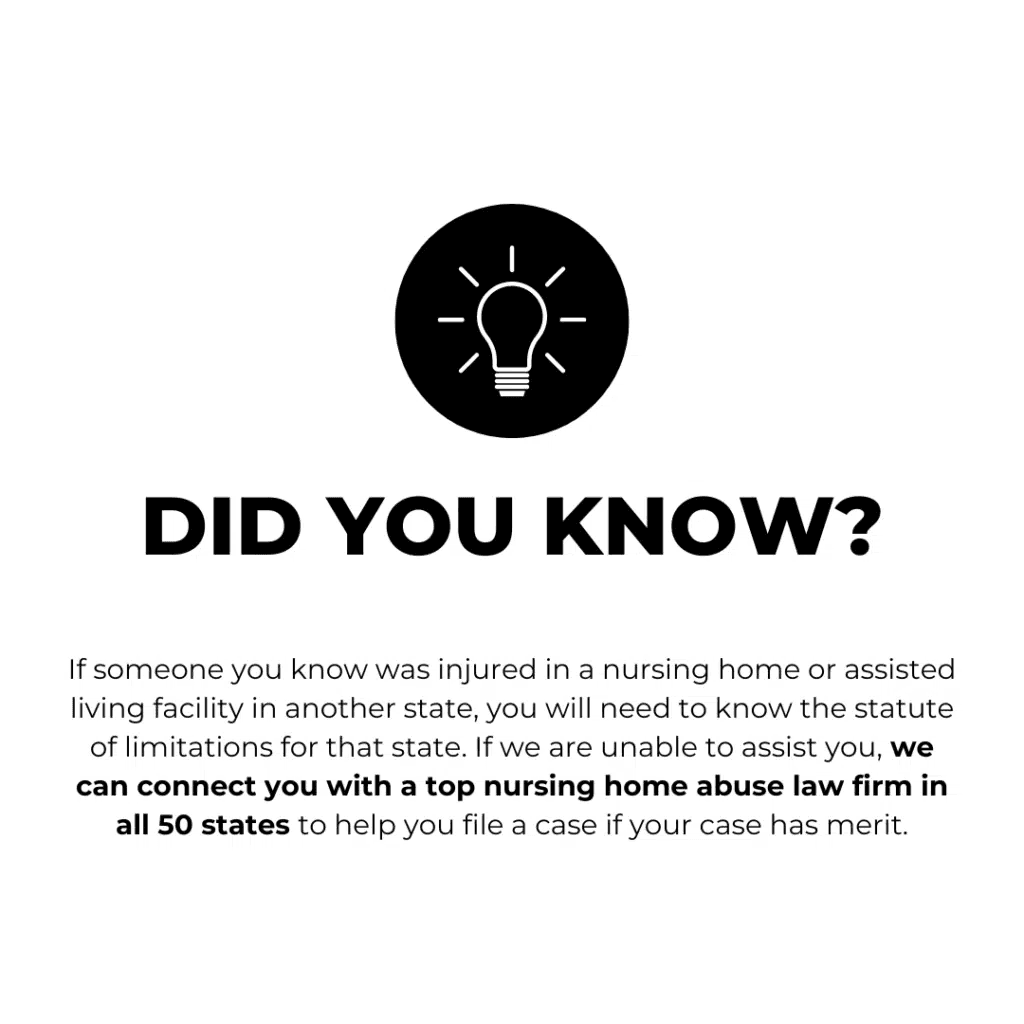
Nursing home abuse and neglect put vulnerable residents at serious risk, leading to malnutrition, dehydration, infections, and preventable injuries. When facilities fail to provide adequate care, residents suffer, and families are left feeling helpless. Lack of supervision, improper medical treatment, and unsafe conditions can result in devastating harm. Understanding the warning signs, knowing your legal rights, and holding negligent facilities accountable are crucial steps in protecting your loved ones. Learn how to take action and seek justice.
November 5, 2024
3 min
Placing a loved one in a nursing home is one of the most challenging decisions a family can make. Alongside the emotional stress, there’s a complex web of paperwork that must be navigated. The nursing home contract or agreement is one of the most critical documents you’ll encounter. This legally binding document governs the care that your loved one will receive and sets the framework for their relationship with the facility.
Given the potential for issues such as nursing home abuse, nursing home neglect, and even nursing home lawsuits, it’s crucial to understand the nuances of these contracts. This article aims to guide you through the essential components of nursing home contracts, highlight potential red flags, and provide strategies to protect your loved one’s rights.
A nursing home contract is a formal agreement between the nursing home facility and the resident (or their legal representative). This contract outlines the terms of care, the financial obligations, and the rights and responsibilities of both parties. While it may seem like just another piece of paperwork, the contract is a critical document with long-term implications for the resident’s well-being and legal standing.
Understanding the language and clauses within the contract is essential, particularly when considering the risks of nursing home abuse or neglect. In some unfortunate cases, residents or their families may find themselves in the position of needing to file a nursing home lawsuit due to violations of the contract. Thus, being well-informed from the start can help prevent future conflicts and ensure that your loved one receives the care they deserve.
The admission agreement is the core of the nursing home contract. It includes essential details such as the services provided, the cost of care, and the rules regarding the resident’s stay at the facility. This section often covers:
Federal and state laws mandate that nursing home contracts explicitly outline residents’ rights. Understanding these rights is crucial, particularly in the context of nursing home abuse or neglect. Key rights often include:
The financial section of the contract is one of the most critical areas to review. It should clearly detail the costs associated with care, including:
Many nursing home contracts include clauses related to dispute resolution, often requiring arbitration or mediation in the event of a disagreement between the resident and the facility. Understanding these clauses is crucial, especially when considering the possibility of nursing home lawsuits.
This section of the contract should detail the specific types of medical care and personal services that the nursing home will provide. Reviewing this section carefully is important to ensure that the resident’s needs are fully met. Key aspects include:
The contract should clearly outline the conditions under which a resident disputes deferred or discharged from the facility. Understanding these policies is crucial, as improper transfers or discharges can lead to significant distress and health complications for the resident.

Given the complexity of nursing home contracts, it’s essential to be vigilant for any red flags that may indicate potential issues with the facility or the terms of care. Here are some key warning signs to watch out for:
Before signing a nursing home contract, it’s essential to take the following steps to protect your loved one’s interests:
Read the Contract Thoroughly.
Take the time to read every part of the contract carefully. Don’t rush through the process, and don’t hesitate to ask questions if there’s anything you don’t understand.
Consult with an Attorney.
Given the complexity of nursing home contracts, it’s often wise to consult with an attorney who specializes in elder law, nursing home abuse, or nursing home neglect. An attorney can help you understand the terms and identify any potential issues.
Negotiate Terms if Necessary
While nursing home contracts may seem non-negotiable, there is often room for discussion, primarily if you identify unclear or unfavorable terms. Don’t be afraid to negotiate for better terms or ask for amendments to the contract.
Understand Your Rights
Ensure that you fully understand the resident’s rights as outlined in the contract. This includes rights related to care, privacy, and the ability to file complaints or pursue legal action in cases of nursing home abuse or neglect.
Be Aware of State and Federal Regulations
Nursing homes are regulated by both state and federal laws, which provide additional protections for residents. Familiarize yourself with these regulations to ensure that the contract complies with legal standards and that your loved one’s rights are fully protected.
Signing a nursing home contract is a significant decision that should be approached with care and attention to detail. Understanding the key components of the contract, identifying potential red flags, and seeking legal advice when necessary can help ensure that your loved one receives the care they deserve. In a landscape where nursing home abuse, neglect, and lawsuits are all too common, being well-informed is your best defense.
Michael Hill is a nationally recognized attorney who handles exclusively cases against long term care facilities. Michael and his firm, Michael Hill Trial Law, handle cases across the country.
Disclaimer: This information is provided for informational purposes only. Nothing in this article should be construed as providing legal advice or the creation of an attorney client relationship. Laws are updated frequently and change from state to state. If you desire legal advice, you can contact Michael Hill Trial Law at www.protectseniors.com, send an email to info@protectseniors.com, call (800) 659-2712 to begin an investigation, or contact another attorney.